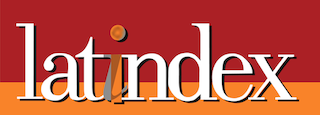Submissões
Condições para Submissão
Como parte do processo de submissão, os autores são obrigados a verificar a conformidade da submissão em relação a todos os itens listados a seguir. As submissões que não estiverem de acordo com as normas serão devolvidas aos autores.- A contribuição é original e inédita e não se encontra sob revisão ou para publicação por outra revista. Caso contrário, deve-se justificar em "Comentários ao Editor".
- Os ficheiros para submissão encontram-se em formato Microsoft Word, OpenOffice ou RTF (desde que não ultrapassem 2MB)
- URLs para as referências foram fornecidas quando disponíveis.
- O texto está em espaço duplo; usa uma fonte de 12-pontos; emprega itálico em vez de sublinhado (excepto em endereços URL); as figuras e tabelas estão inseridas no texto, não no final do documento na forma de anexos.
- O texto segue os padrões de estilo e requisitos bibliográficos descritos em Instruções para Autores, na secção Sobre a Revista.
- Em caso de submissão a uma secção com revisão por pares (ex.: artigos), as instruções disponíveis em Assegurando a Revisão Cega por Pares foram seguidas.
Doutrina
Na Doutrina inserem-se os artigos doutrinais submetidos e aceites através do processo de dupla revisão científica e anónima (“double-blind peer review”).
The Articles section includes doctrinal articles submitted and accepted through the double-blind peer review process.
Recensões
Nas Recensões são apresentadas análises a obras jurídicas, nacionais ou internacionais.
The Reviews section includes analysis presented to national or international legal works.
Vária
Na secção Varia podem publicar-se tanto anotações jurisprudenciais, como outras contribuições que, pelo seu interesse jurídico, sejam julgadas relevantes.
The Varia section may publish both case-law notes and other contributions which, for their legal interest, may be deemed relevant.
Declaração de Direito Autoral
Direitos de Autor (c) 2024 - Revista de direito da ULP

This work is licensed under a Creative Commons Attribution-NonCommercial 4.0 International License.
Política de Privacidade
Os nomes e endereços fornecidos nesta revista serão usados exclusivamente para os serviços prestados por esta publicação, não sendo disponibilizados para outras finalidades ou a terceiros.






